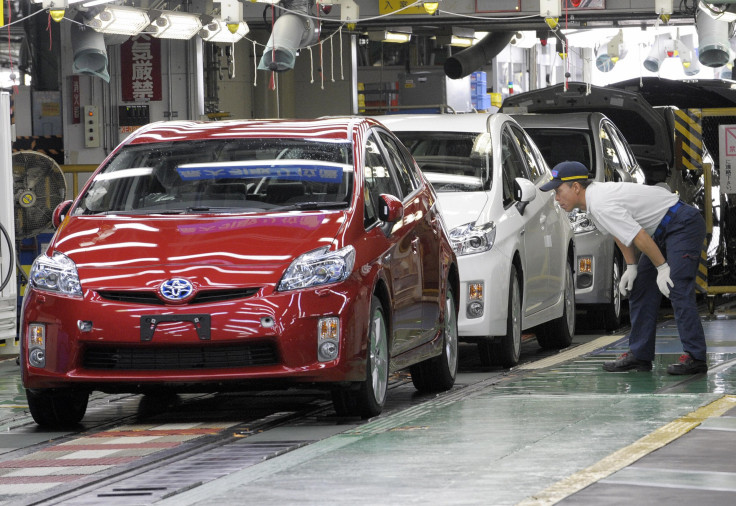Toyota Recalls 1 Million Hybrid Models At Risk Of Catching Fire Because Of Wiring Issue

Toyota Motor Corp. on Wednesday announced a worldwide recall of more than 1 million of its Prius and C-HR crossover sport-utility vehicles because of a wiring defect in the vehicle's electrical system that could lead to a fire.
More than half of the recalled vehicles are in Japan while 192,000 are in the U.S. The remaining models were sold in Europe, Australia and other countries. The recall affects specific Prius models made between June 2015 and May 2018.
The issue is the wire harness that connects to the car’s electrical system. If enough dust collects on the harness or its cover, it could wear down and become exposed. Once that happens, it could overheat and cause a fire, according to the company.
"A portion of the wire harness could contact the cover at this connection and wear over time, causing an electrical short circuit, which can generate heat," Toyota said in a statement. "If sufficient heat is generated, there is an increased risk of a vehicle fire."
Technicians will fix the issue by looking at the vehicles' wire core. If it's exposed, they will swap it out for a new one that will come with a protective sleeve. However, if the wire is not exposed, the technician will place protective tape around the part.
Dealers will inspect the vehicles for free and customers are expected to receive notice if their car is affected by the recall. Owners can also check Toyota's website to see if their vehicle is on the list.
Toyota has had issues with its Prius model in the past. The automaker in 2016 recalled over 300,00 of its vehicles worldwide because of a parking brake defect.
Last week, Toyota announced it would invest $500 million into Uber Technologies Inc. in a joint effort to create self-driving vehicles. Both companies look to compete alongside other brands building autonomous cars. In May 2016, Toyota invested an undisclosed amount to Uber for a program that would lease vehicles to Uber drivers.
© Copyright IBTimes 2025. All rights reserved.



















